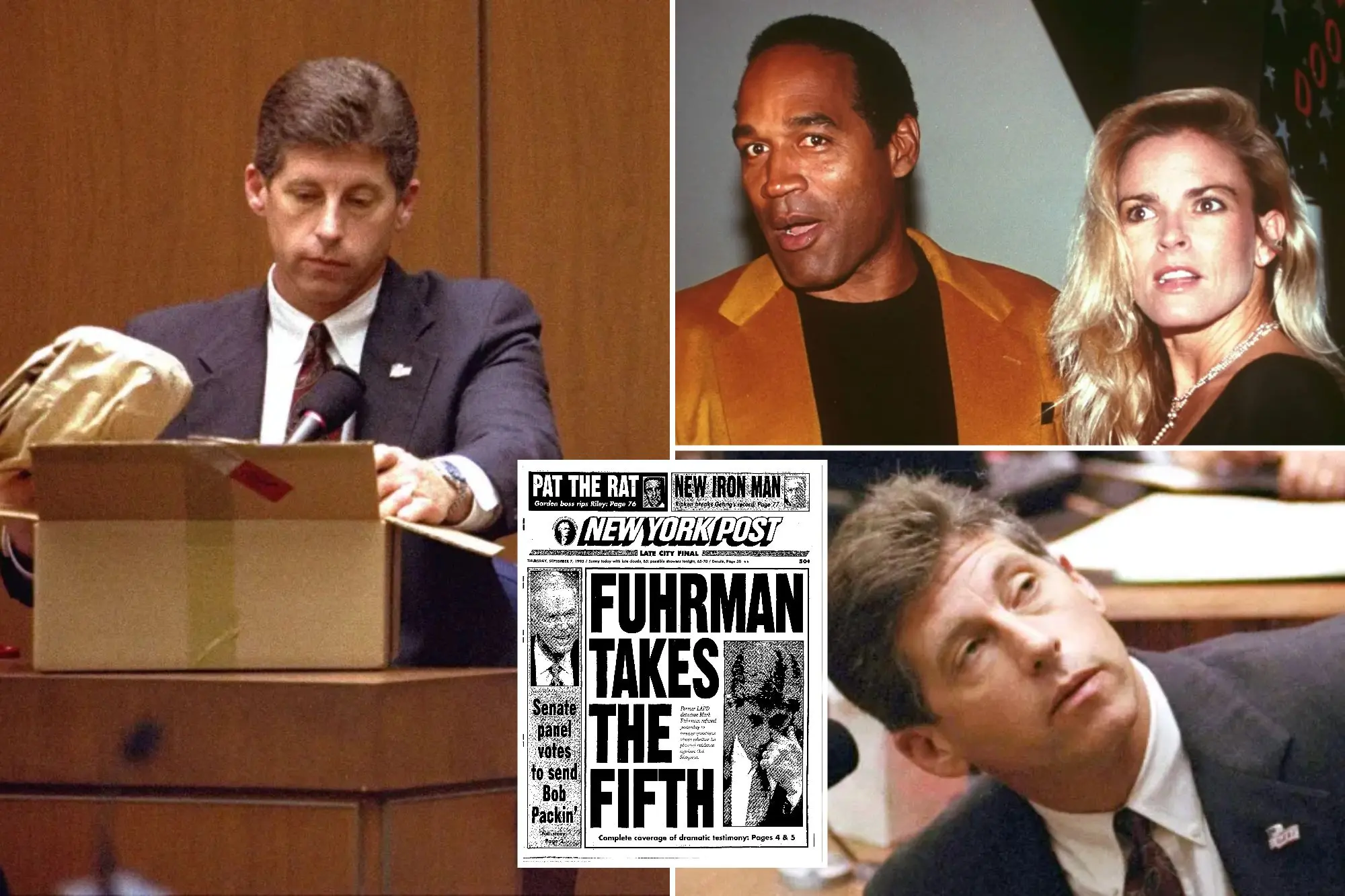Former Los Angeles police detective Mark Fuhrman, once a central figure in the highly-publicized OJ Simpson trial, finds himself barred from law enforcement under a California police reform law.
This legislation, enacted in the aftermath of the George Floyd killing in 2020, aims to hold officers accountable for criminal behavior or bias in their actions.
Fuhrman’s involvement in the OJ Simpson trial dates back to 1994 when he was among the first detectives to investigate the murders of Nicole Brown Simpson and Ronald Goldman in Los Angeles. However, his credibility came under scrutiny during the trial due to accusations of racial bias.
Despite testifying that he had not used racial slurs in the past decade, evidence emerged of recordings where Fuhrman had done so repeatedly. This revelation cast doubt on his testimony and raised questions about the integrity of the investigation.
Following Simpson’s acquittal in 1995, Fuhrman retired from the LAPD. However, his legal troubles were far from over. In 1996, he pleaded no contest to perjury charges stemming from his testimony during the trial.
Despite his departure from law enforcement, Fuhrman remained in the public eye, transitioning to a career as a TV and radio commentator and author. His book, “Murder in Brentwood,” delves into the details of the Simpson case.
Fuhrman’s recent decertification under California law serves as a reminder of the state’s commitment to accountability and reform within law enforcement. This measure ensures that officers who have engaged in criminal behavior or exhibited bias are not allowed to continue serving in positions of authority.
The decertification of Fuhrman, who passed away earlier this year at the age of 76, underscores the lasting impact of his actions during the OJ Simpson trial. It also signifies a step forward in holding law enforcement officers accountable for their conduct, regardless of rank or tenure.
The California law, passed in 2021 and implemented in 2023, represents a significant shift in policing standards. Prior to its enactment, decisions regarding officer misconduct were often left to individual agencies, leading to inconsistencies in disciplinary measures.

With roughly 100 officers decertified since the law took effect, California is sending a clear message that misconduct will not be tolerated within its law enforcement ranks. By holding officers accountable for their actions, the state aims to rebuild trust between communities and the police.
Fuhrman’s case serves as a cautionary tale about the consequences of unethical behavior within law enforcement. While his role in the OJ Simpson trial may have thrust him into the spotlight, it ultimately led to his downfall and exclusion from policing.
The legacy of the OJ Simpson trial continues to reverberate through the criminal justice system, highlighting the complexities of race, bias, and accountability.
As California and other states strive to reform their policing practices, cases like Fuhrman’s serve as reminders of the ongoing work needed to ensure fairness and integrity in law enforcement.
While Fuhrman’s story may have reached its conclusion, the broader conversation about police accountability and reform is far from over.
As communities grapple with issues of trust and transparency, the need for meaningful change within law enforcement remains a pressing concern. Only through continued vigilance and reform can we strive toward a more just and equitable society.
Read more news:
